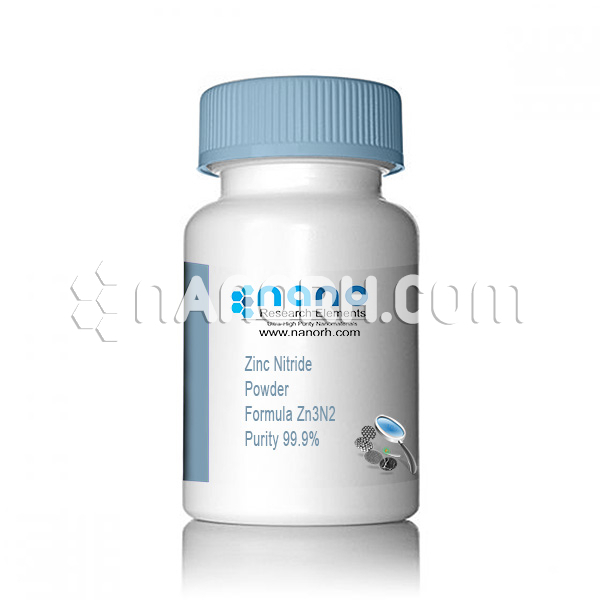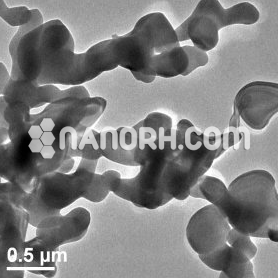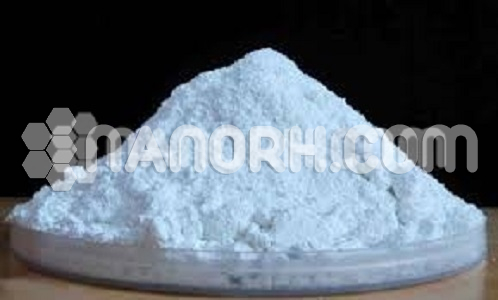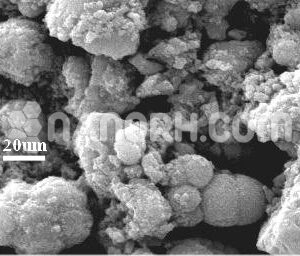| Zinc Nitride Powder | |
| Product No | NRE-11292 |
| CAS | 1313-49-1 |
| Purity | 99.9% |
| Formula | Zn3N2 |
| APS | <40 µm (can be customized) |
| Color | Gray |
| Molecular Weight | 224.2 g/mol |
| Density | 6.2 g/cm3 |
| Melting Point | 700 °C |
| Boiling Point | NA |
Zinc Nitride Powder
Zinc Nitride powder is an inorganic compound composed of zinc (Zn) and nitrogen (N). It is a stoichiometric compound in which zinc is bonded to nitrogen atoms, forming a gray or black crystalline powder. Zinc nitride is an interesting material due to its unique properties, including its high thermal stability, electrical conductivity, and mechanical strength. It is generally synthesized by reacting zinc metal with ammonia or nitrogen gas at high temperatures under controlled conditions.
Applications
Electronics and Semiconductor Devices:
Zinc nitride exhibits semiconducting properties, which make it useful in the development of electronic components. It is being researched as a potential material for use in transistors, diodes, and other semiconductor devices where high thermal stability and electrical conductivity are required.
It is also used in the manufacture of thin-film transistors and electronic displays, where it can serve as a material for conductive layers in devices like solar cells, light-emitting diodes (LEDs), and photovoltaic cells.
Catalysis and Chemical Reactions:
Zinc nitride has shown promise as a catalyst in various chemical reactions. Its catalytic properties are useful in applications like nitrogen fixation, hydrogenation, and other reactions requiring a stable material that can withstand high temperatures and reactive environments.
It is also employed in some environmentally friendly catalytic processes that help break down toxic gases or assist in the efficient production of chemicals and fuels.
Energy Storage Devices:
Due to its high thermal conductivity and electrical properties, zinc nitride is being explored for use in energy storage devices, such as batteries and supercapacitors. The material’s ability to improve the efficiency and longevity of energy storage systems is a focus of ongoing research.
Zinc nitride is sometimes considered as a potential electrode material or electrolyte in batteries, particularly in lithium-ion batteries, where it could enhance performance and stability.
High-Temperature Applications:
Zinc nitride’s high thermal stability makes it an excellent candidate for use in high-temperature applications, such as in the aerospace, automotive, and power generation industries.




